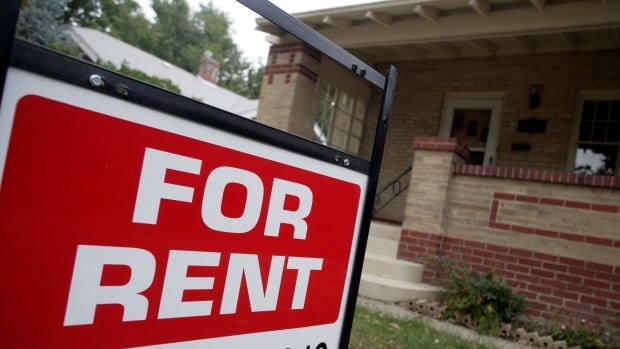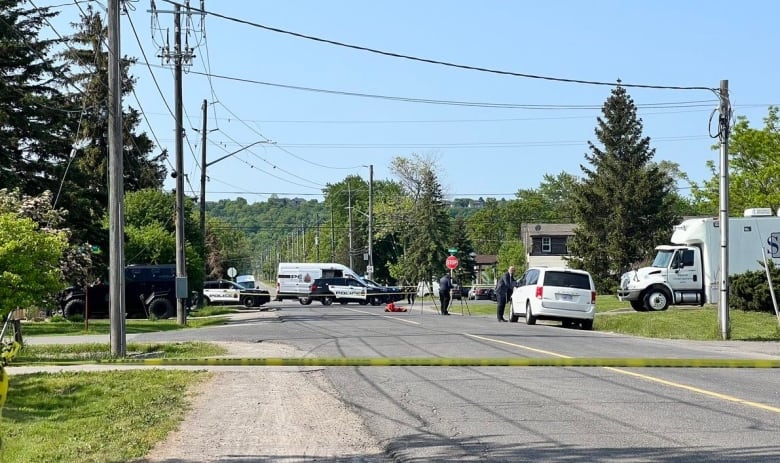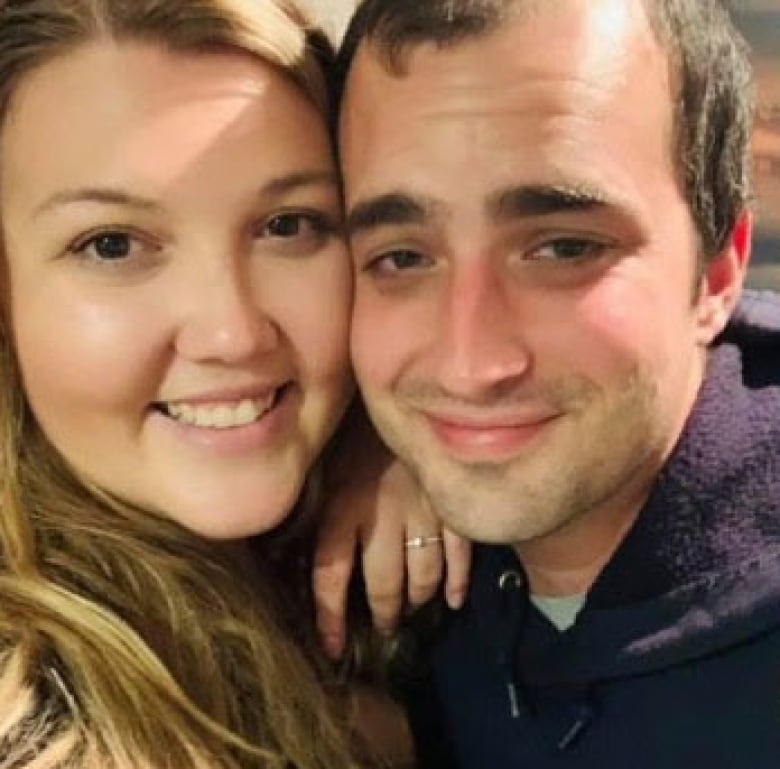
Advocacy groups say tensions between landlords and renters are at an all-time high in the wake of a Hamilton landlord killing two tenants.
Police told CBC Hamilton detectives are investigating if a conflict over a mould complaint occurred right before the landlord killed 27-year-old Carissa MacDonald and her 28-year-old fiancé Aaron Stone on May 27.
The landlord, 57, died a few hours later in a shootout with police.
Police have not released the name of the landlord, who neighbours say also lived in the home. Terry Gerald Brekka owned the house, according to property records.
The Landlord and Tenant Board (LTB), the tribunal that hears complaints and requests by both landlords and tenants, said it had no applications related to the property in the last two years. The city’s bylaw department said there hadn’t been any complaints in recent years.

While there are still many unanswered questions about the circumstances leading to the shootings, the situation has advocates speaking out about conflicts between landlords and tenants.
They say what happened in Hamilton was an extreme case and is inexcusable, and also say it seems separate from the long list of complaints about the LTB and its role in resolving conflict.
‘We’ve seen this coming’
Mike Wood, chair of Hamilton Tenants in Unity, told CBC News that because of what he says is rising tension between landlords and tenants, news about the shooting was “disgusting” but didn’t totally surprise him.
“We’ve seen this coming through the pipeline,” he said.
Kimberley Farrell, a Hamilton-based paralegal who specializes in landlord and tenant disputes, said the behaviour of some landlords is “beyond ridiculous.”
“You own the property and you have the lawful right to it, but you do not have the lawful right to control somebody else’s life,” she said.
“Should you expect to be fearful of your landlord for coming in with the weapon … unfortunately, we’re in an age and stage that, yes, we absolutely have to worry about that.”
Boubacar Bah, founder and chairperson of the Small Ownership Landlords of Ontario who has also been a landlord for two decades, said the situation between landlords and renters is worse than ever.
“I’ve gotten desperate phone calls from landlords who have been assaulted, who are getting racially abused … [tenants] destroying property,” he said.
Peter Janowski, a paralegal in the Niagara region focused on landlord and tenant issues, said he has also seen issues escalate to violence over issues as small as whether people should leave their shoes in communal hallways.
“I’ve seen tenants get into fist fights over that,” he said.
Better education may help ease tensions
The mentality of some landlords needs to change, said Farrell.
“If you don’t want to rent out your property and be a landlord and abide by the laws, then you shouldn’t be in the property business at all,” she said.
Bah said landlords can also be at the mercy of abusive tenants and feel there’s nowhere to get help.

He said one solution is to tighten the screening process for tenants and also said landlords and renters should approach their respective advocacy groups to troubleshoot issues.
“Many small landlords don’t even know the LTB exists … not many people know about the bylaw office,” Bah said.
“At the end of the day, we are all in it together.”
Farrell agreed that more education is needed. She said a provincially run emergency phone line that either party can call for immediate advice would help de-escalate situations.
A landlord licensing system that requires them to do ongoing training on their rights and responsibilities, would be “the most pivotal tool,”she said.

